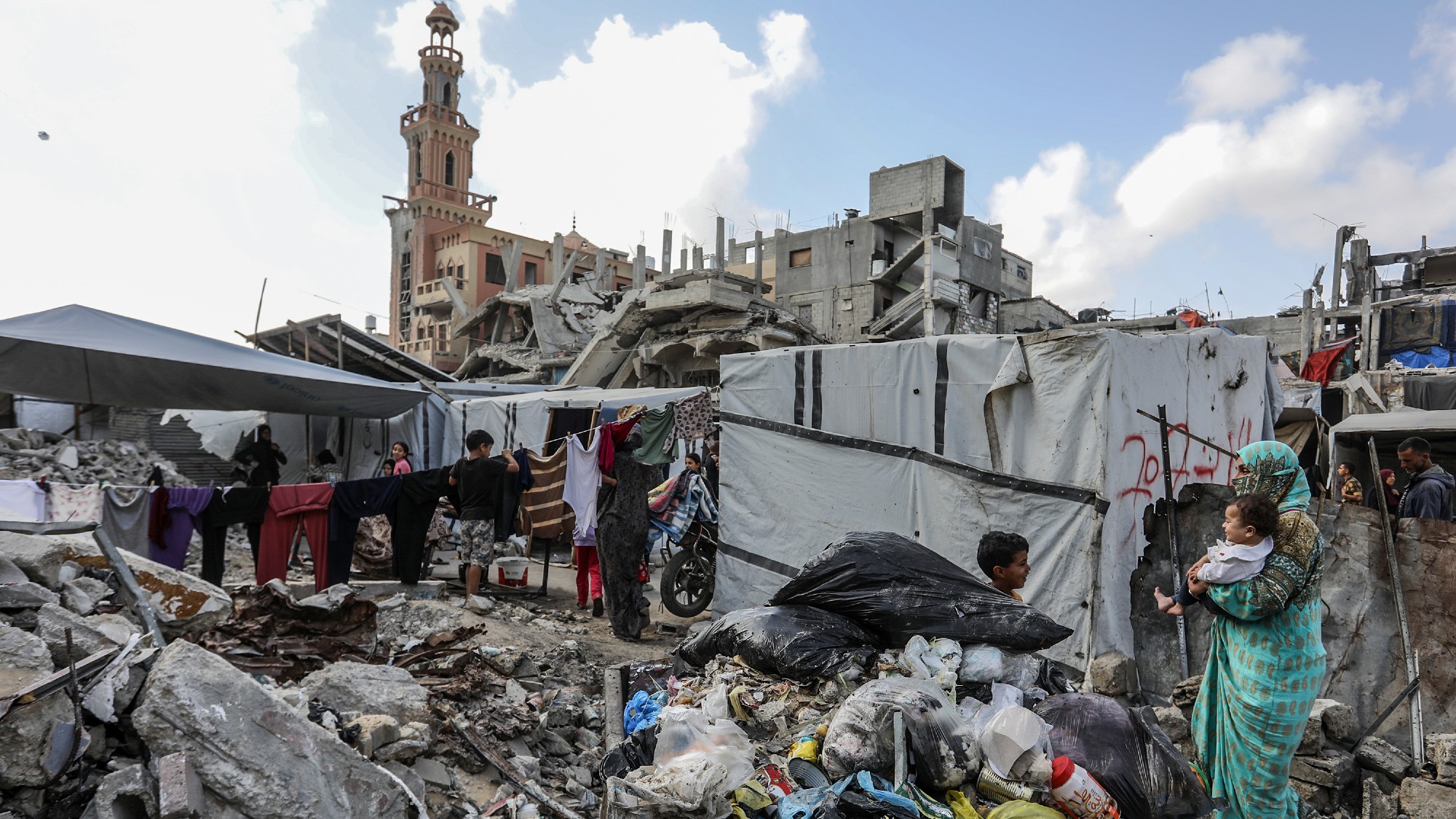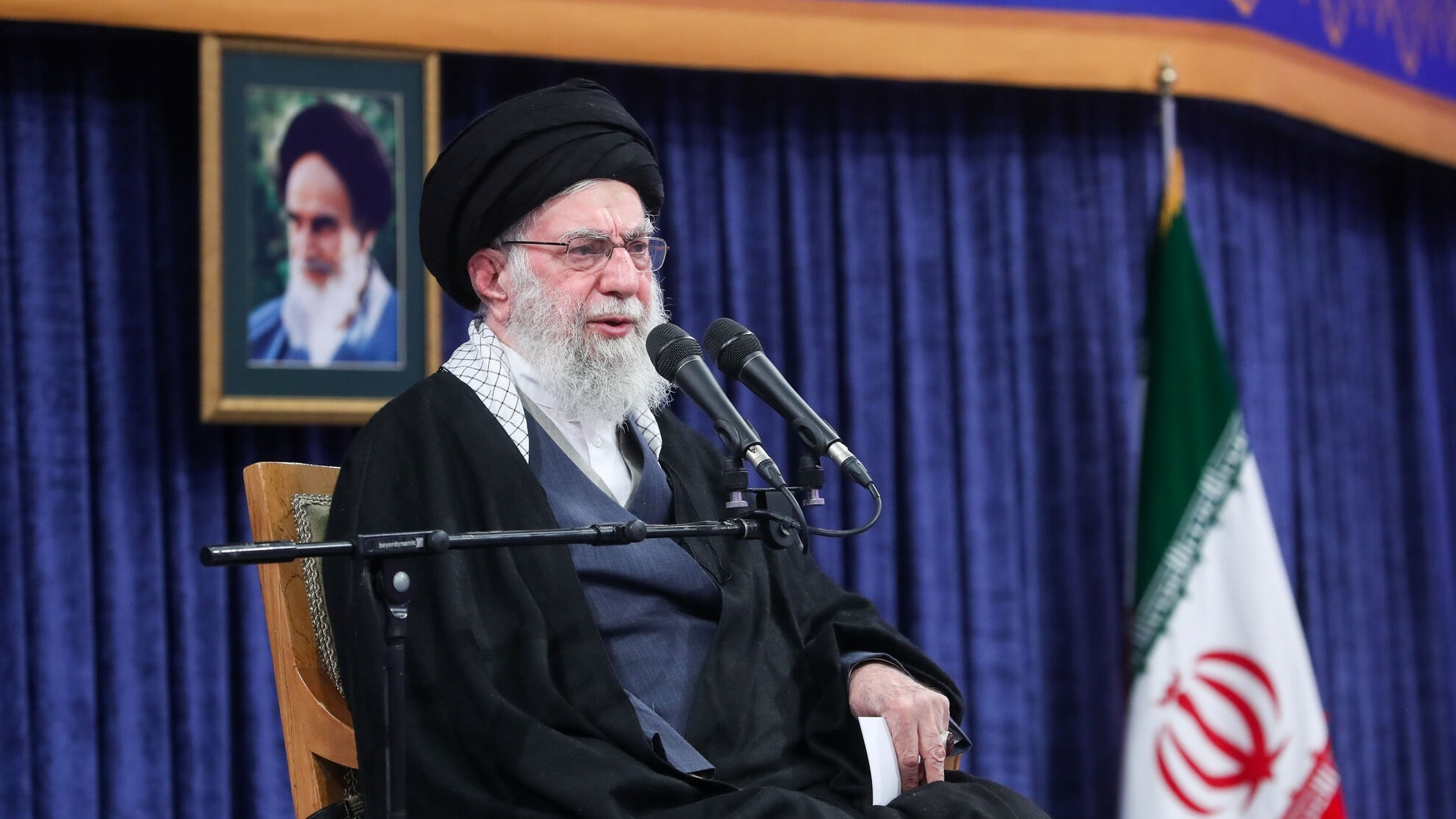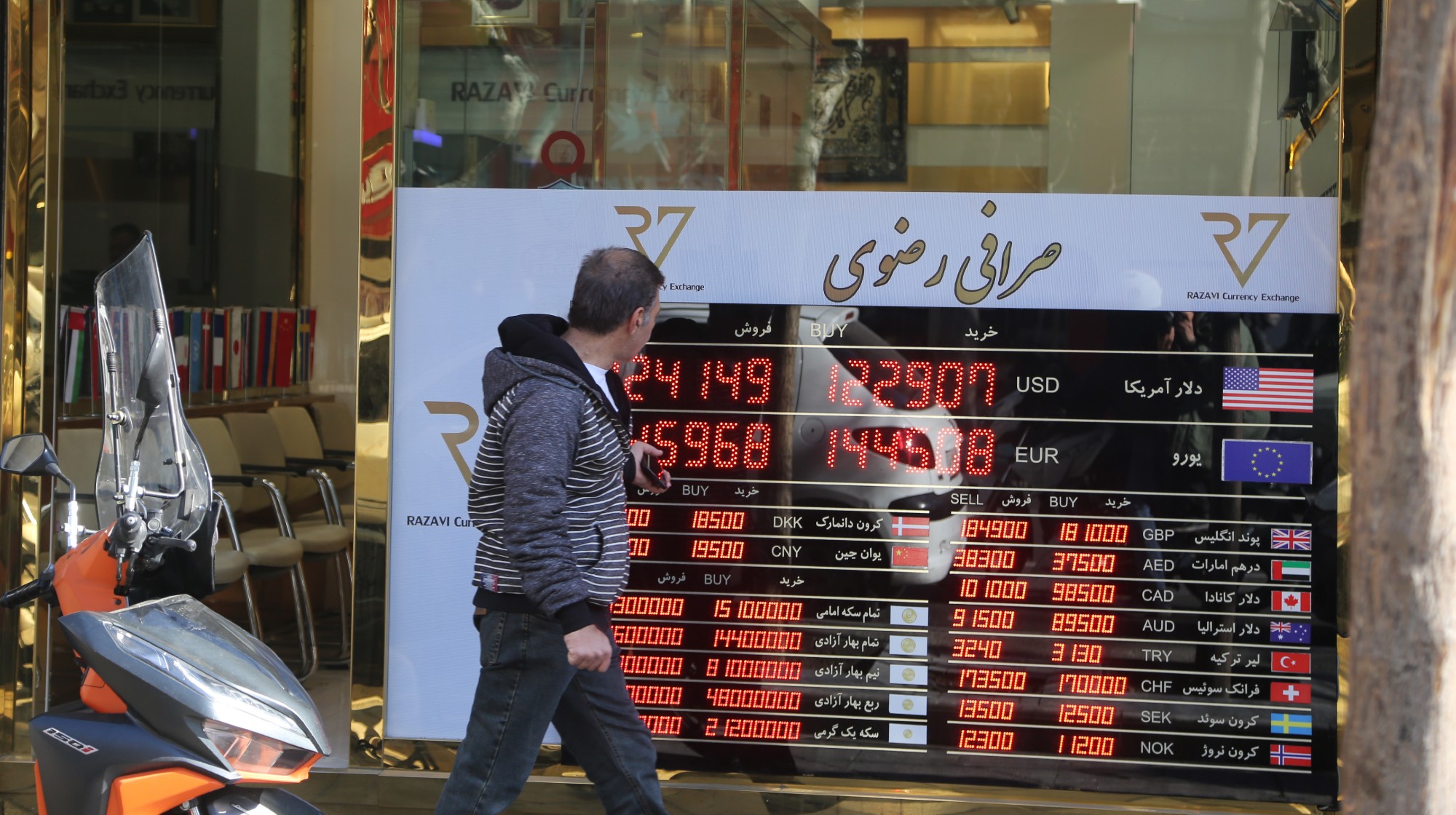Israel's plan for confining all Palestinians in 'humanitarian city'
Defence minister wants to establish zone in Gaza for displaced people – which they would not be allowed to leave – prompting accusations of war crimes

A free daily email with the biggest news stories of the day – and the best features from TheWeek.com
You are now subscribed
Your newsletter sign-up was successful
When Donald Trump announced in February that the US should take "ownership" of Gaza and develop the battered enclave into the "Riviera of the Middle East", he caused outrage across the Middle East – but not in Israel.
Standing alongside Benjamin Netanyahu, the US president suggested forcibly relocating two million Palestinian residents to a "good, fresh, beautiful piece of land" elsewhere, cheered by many far-right ministers in Netanyahu's coalition government.
Now, the Israeli prime minister is back at the White House to discuss a possible US-brokered ceasefire with Hamas (and to nominate Trump for the Nobel Peace Prize). Meanwhile, his defence minister, Israel Katz, has laid out another controversial proposal: to force Palestinians into what he termed a "humanitarian city" in Gaza.
The Week
Escape your echo chamber. Get the facts behind the news, plus analysis from multiple perspectives.

Sign up for The Week's Free Newsletters
From our morning news briefing to a weekly Good News Newsletter, get the best of The Week delivered directly to your inbox.
From our morning news briefing to a weekly Good News Newsletter, get the best of The Week delivered directly to your inbox.
What is the plan?
Katz told reporters yesterday that he had instructed the Israel Defense Forces to prepare to establish a new zone in southern Gaza, on the rubble where the city of Rafah once stood.
Katz said the idea was for the IDF to control the perimeter of the site, which would initially accommodate about 600,000 displaced Palestinians who have mostly been living in the coastal al-Mawasi area. They would go through "security screening" before entering – but once inside, they would not be allowed to leave.
Eventually, the whole population of Gaza will be moved there in what he called "the emigration plan", said Haaretz. But the IDF would not run the site or distribute aid, Katz added.
Work on the "humanitarian city" could start during the 60-day ceasefire currently under negotiation, Katz said, adding that Netanyahu is leading efforts to find countries willing to "take in" Palestinians.
A free daily email with the biggest news stories of the day – and the best features from TheWeek.com
Katz's words contradict what the IDF's chief of staff said on Monday, in response to claims that the Israeli military had commanded troops to "mobilise" and "concentrate" civilians in Gaza. Eyal Zamir's office told Israel's High Court that the army "does not impose forced population expulsions inside or outside the Gaza Strip", said Haaretz.
An official told the paper that Israel does not expect the plan to proceed, and that no countries approached by Israel had agreed to receive Palestinian refugees.
What else do we know?
Reuters reported yesterday that it had seen a proposal – bearing the name of a "controversial US-backed aid group" – describing "a plan to build large-scale camps called 'Humanitarian Transit Areas' inside – and possibly outside – Gaza".
The $2 billion proposal, created after 11 February and carrying the name of the Gaza Humanitarian Foundation (GHF), outlined "a vision of replacing Hamas' control over the population in Gaza". The plan describes the camps as "voluntary" places where Palestinians could "temporarily reside, deradicalise, re-integrate and prepare to relocate if they wish to do so".
The proposal said that one camp would "house 2,160 people, along with a laundry, restrooms, showers and a school". But a source said the project envisages eight camps, capable of housing hundreds of thousands of Palestinians. The facilities would be used to "gain trust with the local population" and facilitate Trump's "vision for Gaza". The proposal was "submitted to the Trump administration" this year, two sources told Reuters, and "recently discussed in the White House".
The GHF denied it had submitted the proposal, adding that the presentation seen by Reuters was "not a GHF document". A senior US official said "nothing of the like is under consideration", and the US State Department declined to comment.
In May, The Washington Post also reported that the GHF was planning to build housing compounds for Palestinians.
What has the reaction been?
"There is no such thing as voluntary displacement amongst a population that has been under constant bombardment for nearly two years and has been cut off from essential aid," Jeremy Konyndyk, president of the Refugees International advocacy group and former senior US Agency for International Development official, told Reuters.
Legal experts and academics described the plan as "a blueprint for crimes against humanity", said The Guardian. It also breaks international law, said Michael Sfard, an Israeli human rights lawyer. "While the government still calls the deportation 'voluntary', people in Gaza are under so many coercive measures that no departure from the strip can be seen in legal terms as consensual."
Driving someone out of their homeland during a war is a "war crime". And "done on a massive scale", like what Katz has described, "it becomes a crime against humanity".
The defence minister has laid out plans for "a concentration camp", said Amos Goldberg, a Holocaust historian and professor at the Hebrew University of Jerusalem. "It is neither humanitarian nor a city."
Harriet Marsden is a senior staff writer and podcast panellist for The Week, covering world news and writing the weekly Global Digest newsletter. Before joining the site in 2023, she was a freelance journalist for seven years, working for The Guardian, The Times and The Independent among others, and regularly appearing on radio shows. In 2021, she was awarded the “journalist-at-large” fellowship by the Local Trust charity, and spent a year travelling independently to some of England’s most deprived areas to write about community activism. She has a master’s in international journalism from City University, and has also worked in Bolivia, Colombia and Spain.
-
 The EU’s war on fast fashion
The EU’s war on fast fashionIn the Spotlight Bloc launches investigation into Shein over sale of weapons and ‘childlike’ sex dolls, alongside efforts to tax e-commerce giants and combat textile waste
-
 How to Get to Heaven from Belfast: a ‘highly entertaining ride’
How to Get to Heaven from Belfast: a ‘highly entertaining ride’The Week Recommends Mystery-comedy from the creator of Derry Girls should be ‘your new binge-watch’
-
 The 8 best TV shows of the 1960s
The 8 best TV shows of the 1960sThe standout shows of this decade take viewers from outer space to the Wild West
-
 Will increasing tensions with Iran boil over into war?
Will increasing tensions with Iran boil over into war?Today’s Big Question President Donald Trump has recently been threatening the country
-
 Iran and US prepare to meet after skirmishes
Iran and US prepare to meet after skirmishesSpeed Read The incident comes amid heightened tensions in the Middle East
-
 Which way will Trump go on Iran?
Which way will Trump go on Iran?Today’s Big Question Diplomatic talks set to be held in Turkey on Friday, but failure to reach an agreement could have ‘terrible’ global ramifications
-
 Israel retrieves final hostage’s body from Gaza
Israel retrieves final hostage’s body from GazaSpeed Read The 24-year-old police officer was killed during the initial Hamas attack
-
 Trump, Iran trade threats as protest deaths rise
Trump, Iran trade threats as protest deaths riseSpeed Read The death toll in Iran has surpassed 500
-
 Iran cuts internet as protests escalate
Iran cuts internet as protests escalateSpeed Reada Government buildings across the country have been set on fire
-
 Iran’s government rocked by protests
Iran’s government rocked by protestsSpeed Read The death toll from protests sparked by the collapse of Iran’s currency has reached at least 19
-
 Why is Iran facing its biggest protests in years?
Why is Iran facing its biggest protests in years?TODAY’S BIG QUESTION Iranians are taking to the streets as a growing movement of civic unrest threatens a fragile stability